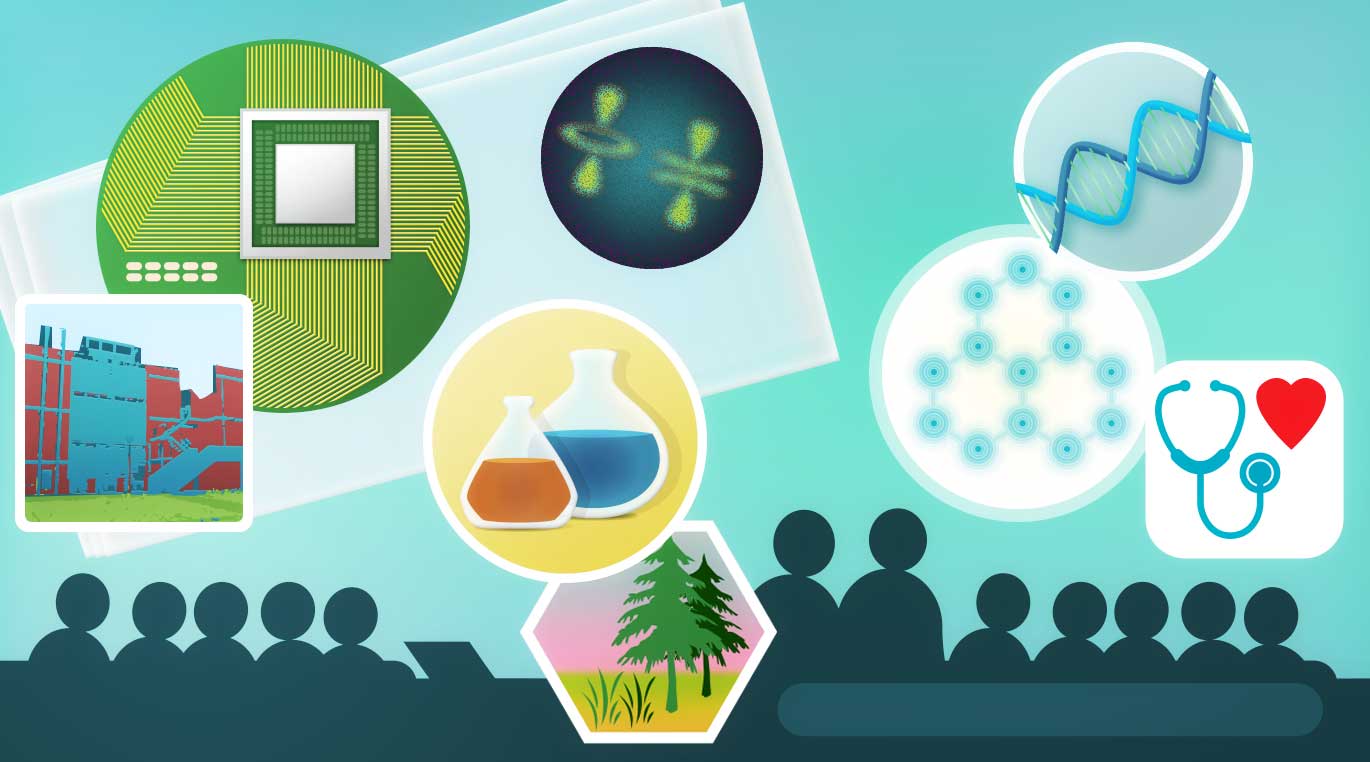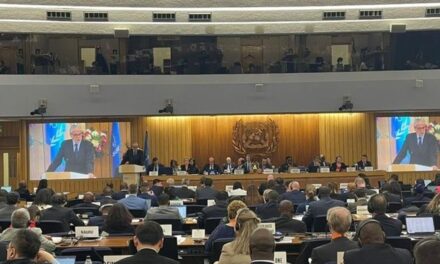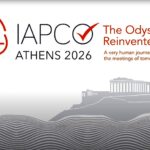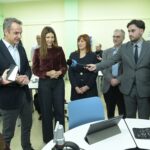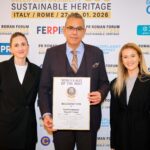A new generation of scientists, many placed at major universities abroad, is soon to begin research work in Greece. According to Sunday newspaper “To Vima” (Researchers & Research return to Greece, as bureaucratic inflexibilities are eliminated, 4.2.2018)*, approximately a quarter of the young scientists whose submissions for funding from the Hellenic Foundation for Research and Innovation (ELIDEK) was approved, will return to Greece to conduct cutting-edge research, some of them leaving behind research positions with major institutions abroad. Marine sciences, regenerative medicine, stem cell use in the treatment of heart disease and neurodegenerative ailments, big data, robotics, ‘black holes’ and their affect on galaxies, prehistoric and classical antiquity, the study of fake news and their impact on modern societies are just some of the research projects funded to be carried out in Greece.
34 million Euros for 180 research programmes
All this of course is only the beginning and the result of the work done in the area by the Alternate Minister for Research, Kostas Fotakis, who set up the Foundation and secured its financing. A total of €34 million will be made available to 180 research projects by young scientists, as part of an overall agreement with the European Investment Bank.
What makes it especially attractive for young scientists to come to Greece and do their research, according to Fotakis, is that for the first time they will actually be able to be scientifically responsible for their research programme, build their own team and lead it. This was not possible in Greece until now, as the preexisting legal framework allowed only for University Academic Staff to hold that responsibility. “Despite initial difficulties during ELIDEK’s first year of operation”, Fotakis notes, “the Foundation offered scholarship support to 591 doctoral candidates among 2,144 applicants. Moreover, according to the provisional list of assessment results of post-doctoral research projects by young scientists, 160 out of 1,670 submissions were from scientists working abroad and wishing to return to Greece to carry out their research here.”
“The first tangible signs of young Greek scientists returning following sojourns at some of the world’s major universities is a fact,” notes ELIDEK director Nektarios Nasikas. “The aim is to create opportunities for quality research in Greece that is globally competitive, based on our most valuable asset, namely Greek scientists.”
Life Sciences
According to Achilleas Gravanis – Professor of Pharmacology at the School of Medicine, University of Crete, and responsible for the assessment of proposals – of the 42 submissions approved for funding by ELIDEK, 12 concern exceptional young scientists from major universities abroad (MIT, Cambridge, Oxford, Max Planck Institute, Harvard, King’s College and University College of London, UPMC-Paris 6) who have decided to return and work in Greece!
“Unfortunately, limited resources do not allow us to fund other excellent proposals,” notes Gravanis, adding that the aim is for “another call for postdoctoral research within the year so as to give them a second chance.”
New trends in biological and biomedical research: The study of the biological behaviour and importance of stem cells in heart, bowel and immune diseases, as well as the investigation of pathological molecular, biochemical and genetic mechanisms of malignant blood, breast and lung tumors; The study of the pathophysiological mechanisms of neurodegenerative diseases (such as Parkinson’s, Alzheimer’s and multiple sclerosis) in neuronal communication processes and the development of simulation systems of the function of human neuronal tissue in ex vivo conditions. The study of cellular and molecular mechanisms of inflammation and immunity, especially in conditions of infection.
Natural Sciences
Of the 24 research proposals being funded, seven concern young scientists returning to Greece from universities abroad. A total of 243 proposals were submitted, and according to Professor at the Department of Chemical Engineering of the University of Patras and unit coordinator Costas Galiotis, the research involved is cutting edge.
Moreover, 18 out of the 24 researchers have received training and gained work experience at top universities and research centres abroad (Harvard, Yale, CERN, University of Manchester, Technische Universitat Wien)
New trends in Astrophysics (such as astral winds, black holes, galactic nuclei phenomena), High Energy Physics (such as quarks plasma properties, experimental string theory proof), Metamaterials (such as quantum self-organization, magnetic alloys) New Laser Systems (such as quantum laser, circularly polarized UV radiation), Nanosilicates (such as two-dimensional and plasmonic materials), Catalyzing (such as the development of new modified catalysts, photocatalysts for hydrogen production) and Geosciences (such as bio-meteorology, climate change, soil erosion dynamics).
Humanities
According to Antonis Regakos, Ancient Greek Philology Professor at the Aristotle University of Thessaloniki, 15 proposals (out of a total of 137 submissions) in the Humanities and Arts will be funded.
New trends: seven historical researches (from antiquity to the present), five archaeological (prehistoric and classical archeology), one in ancient Greek literature, one in Byzantine literature and one in linguistics.
Social sciences
Panteion University Professor Xenia Chrysochou says she is impressed by the research proposals submitted by young scientists from Greece and abroad. “New ideas will be funded in all social sciences, from economics to sociology and political science, to psychology, education, economic geography and anthropology,” she notes, adding that “we regret that we can only fund 28 of the proposals received but we are pleased to be able to stimulate research in the social sciences.”
New trends: Integration of refugees, psychosocial factors influencing the development of multiple sclerosis, corruption in the health system, the politicization of the debate on European integration, surrogate motherhood, technological networking in neighborhoods and its impact on the social fabric, denial of vaccination, diffusion of false news, business competitiveness, the digitization of endangered /lost dialects.
Energy and Environmental Sciences
Young scientists from Greece and abroad submitted dozens of research proposals. According to Professor of Energy Physics at the University of Athens and Built Environment international expert, Mattheos Santamouris, 14 research proposals in major scientific categories have been funded.
New trends in: Oceanography, Marine Biology and Marine Sciences: food chain in the marine environment, the invasion of Greek seas by species from warmer regions, the effects of climate change on marine gastropods, the development of floating wetland elements for the control of marine pollution, the management of oil accidents in the marine environment. Wastewater Management: The proposals here focus on the management of wastewater using standard microbial fuel cells. Earth Sciences: Research in the field of rehabilitation of soils using thermal plasma. Atmospheric Physics: Study of the effect of organic aerosols on human health. Biofuel production: Application of microbial electrochemical techniques for the production of biofuels.
Engineering and Technology Sciences
Field coordinator and ELIDEK Scientific Council president, Professor Dionysis Tsichritzis, notes that because engineers in all sectors are widely sought after, especially in large countries like Germany facing shortages, there are only two amongst the approved candidates returning to Greece, one from Copenhagen and one from Cambridge. However, over 20% are women, which is impressive, given the usually small percentage of women engineers. About 25% of the research proposals relate purely to the promotion of technology of all specialties, with a large percentage focusing their interest on specific technology applications.
New trends: 23% in environmental applications, 16% in nanotechnology and new materials, 16% in biotechnology and medical applications, 12% in data and artificial intelligence, 8% in design and fine arts.
Mathematics and Information Sciences
University of Athens Professor Mathematics Vasilis Dougalis and co-ordinator of the group notes that approximately 12% of the 94 research proposals submitted have been proposed for funding, the average age of these scientists is 38 years and have done their PhD studies mainly in Greece. At the moment, 4 of them are post-doctoral students in universities and research centres abroad, while the rest work as postdoctoral researchers in universities and research centres in Greece.
New trends such as Big Data, Social Network Analysis, Neuroscience and Robotics, as well as innovative architectures. In Mathematics, the proposals concern both Theoretical and Applied Math, with emphasis on Some Differential Equations, Stochastic Analysis and Contemporary Geometry.
Agricultural Sciences
Kostas Biljaderis, a professor at the Department of Food Science & Technology at the Aristotle University of Thessaloniki and a member of Canadian research institutes, notes that 163 research proposals were submitted and 14 approved for funding in this area, which “covers a wide range of sub-fields, such as the primary crop and livestock sector, catches, agricultural biotechnology, foods and their components etc”.
New Trends in Agricultural Biotechnology: Molecular entomology – insect resistance to insecticides, development of RNA molecule spraying techniques for gene expression control in crop plants, cherry genetic variance analysis, biodiversity and activity of the soil bacterial community and the rhizosphere of abiotic stress resistant plants.
Black holes under the microscope
Kalliopi Dasyra was the “cream of the crop” in ELIDEK’s assessment in the natural sciences; with work behind her at the Paris Observatory, the French Atomic Energy Commission, the Spitzer Science Center at the California Institute of Technology in the USA and the Max Planck Institute for Extraterrestrial Physics in Germany, she is now in Greece and as she explains, her group’s research “focuses on a key issue of modern astrophysics: how galaxies are affected by black holes when they come across matter.”
During the incident (eg, gas or stars) energy is released, which diffuses and is deposited in middle-space, generating winds. These winds can be impressively powerful, carrying gas masses equal to 100 million times the mass of our Sun at speeds of millions of kilometres per hour. ” “The purpose of our research is to discover such new winds, to study their basic properties (such as the temperature and the rate at which they carry gas) and to understand whether they can change the shape of the galaxies. To this end, we will primarily use data from the largest array of radio telescopes on Earth, the Atacama Large Millimeter Array (ALMA), with auxiliary data from large space missions (eg Hubble, Spitzer, Herschel Space Telescopes)”, she adds.
Artificial skin and new therapies
Dimitris Tzeranis – who has worked next to artificial skin pioneer, professor of polymer science and engineering Ioannis Yannas at MIT – is today in Greece, a research scientist at the Institute of Molecular Biology and Biotechnology at the Foundation for Research and Technology of Crete (FORTH); when crunch time for the big decision came, he chose not to stay in the USA, where he had a job at the University of Berkeley, but to return to Greece.
“I came for two reasons,” he says, “because in Greece there are only few opportunities and I had one, and because I wanted to have a family and for my family to live here.”
He studied Mechanical Engineering, did a Master in Robotics but soon realized his interests were in regenerative medicine and biomedical medicine. His research proposal impressed ELIDEK. It explains that damages to central nervous system tissues (injuries to the head or spinal cord from falls or accidents, strokes) have devastating effects on the lives of thousands of people worldwide.
“There are currently no clinically acceptable treatments and scientifically proven efficacy. The goal of the neuroimplants proposal submitted to ELIDEK is to develop and evaluate new treatments for central nervous system traumatic lesions by combining cutting edge technologies developed at FORTH and MIT to develop therapies that could potentially be transferred to medical use and improve the lives of thousands of people,” he concludes.
*Translated and edited by Magda Hatzopoulos
Read more via Greek News Agenda: Alternate Minister for Research & Innovation: The government aims at creating a production model grounded in knowledge-based economy; Government | Policy: Lois Labrianidis on Greece’s comparative advantages and the “Knowledge and Partnership Bridges” initiative
The Hellenic Foundation for Research and Innovation is a new institution through which a profound reforming effort is being attempted in the field of Research and Innovation in the country
N.N.

